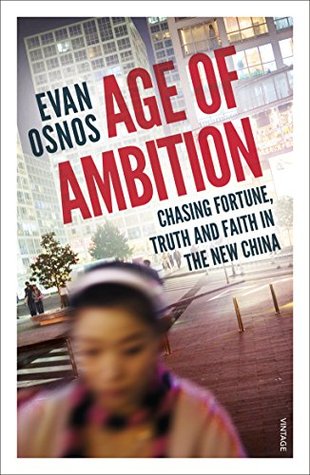More on this book
Community
Kindle Notes & Highlights
in ancient China, fertile plains and rivers lent themselves to rice farming that required irrigation and compelled people “to cultivate the land in concert with one another.” By contrast, the ancient Greeks, who lived amid mountains and coastlines, relied on herding, trading, and fishing, and they were able to be more independent. In that history, Nisbett saw the makings of Greek ideas about personal freedom, individuality, and objective thought.
Punishment was collective: judges sentenced not just the guilty individual but also family members, neighbors, and community leaders.
Lam views each gambling table as a “microscopic battle,” a standoff between science and faith. On one side is the casino, which can reliably calculate its advantage to two decimal points. On the other is a collection of Chinese beliefs about fate and superstition, which, Lam says, “people know are irrational but are part of the culture.”
“Americans tend to see themselves in control of their fate, while Chinese see fate as something external,” Lam, the professor, said. “To alter fate, the Chinese feel they need to do things to acquire more luck.”
“the cushion hypothesis,” is that traditionally large Chinese family networks afford people confidence that they can turn to others for help if their risk-taking does not succeed.
What do you want to be, and what will you pay to be it?
“Chinese have never looked at foreigners as human beings,” Lu Xun wrote. “We either look up to them as gods or down on them as wild animals.”
“We cast aside our three core ideas—Buddhism, Taoism, and Confucianism—and that was a mistake.
He pointed out the window to the highway and said that it had taken decades for Italy to build it, because of local opposition. “If this were China, it would be done in six months!
“Yes, it’s a one-party state, but the administrators are selected from among the elites, and elites picked from one-point-three billion people might as well be called super-elites.”
Zhu saw an enduring philosophical divide between China and the West: “two different ways of thinking,” as he put it. “We will use their tools and learn their methods. But fundamentally, China will always maintain its own way,”
“When I read a foreign newspaper, I see lots of things I don’t know about.”
“In Chinese, we say that you can bore a hole in a stone by the steady dripping of water,”
the city of Wuhan planned to build 140 miles of new subway lines in the seven years that New York City set aside to build 2 miles of the Second Avenue subway.
A Western diplomat in Beijing told me, “One lesson of the crisis is that we economists should all be humbler. I think we have to accept the possibility that China may become something close to a fully developed economic state without substantial political reform.”
He argued for a “soft” industrial policy in which a clamorous free market produced new industries and firms, and the government spotted the best prospects and helped them grow by giving them tax breaks and building infrastructure
He advised poor countries that if they want to get richer, they needed to delay political reform or fall victim to the chaos of post-Soviet Russia.
critics of “cyber-utopianism” argued that the Web provided only an illusion of openness, and a weak sense of community; that it strengthened authoritarian governments by creating a safety valve and defusing the pressure for deeper change.
“In China, our culture forces us to say things that we don’t really think.
“Han Han is only a mirror image of the people who like him. So in what ways will that reflection transform them? It will not.”
But serving as a mirror for his fans was perhaps his greatest strength. He articulated what others thought but didn’t say.
“Han Han represents the person that all of us want to become, and the things that we all want to do but are never brave enough to try.”
I asked his father to talk about the three decades he spent working in a coal mine. He said, “All mines are dangerous. It was very hard at that time. We earned about sixty yuan per month.” And that was all he had to say on the subject. Michael, by contrast, saw his own life as an epic fable of frustration and triumph. He wrote, “I was extremely lonely and confused from 2002 to 2007. I wanted to be someone great. I didn’t want a commonplace life … Was I really destined to be a failure? What should I do? Maybe I was doomed to be an ordinary person.” The prospect of conformity offended him. He
...more
The digital blackout lasted ten months, and the economic effects were dramatic: exports from Xinjiang, the Uighur autonomous region, plummeted more than 44 percent. But the Party was willing to accept immense economic damage to smother what it considered a political threat.
the more that Chen and his supporters complained, the more reluctant the government became to show that it was responding to pressure.
The Beijing Daily declared, “Everyone knows that stability is a blessing and chaos is a calamity.”
The Arab Spring unnerved Chinese leaders more than any event in years. “A single spark,” Mao observed, “can start a prairie fire.”
The other reason the Party was displeased was philosophical: it often argued that men and women in the developing world were more interested in building wealth and maintaining stability than in pursuing “Western notions” of democracy and human rights. This argument became more difficult to believe now that men and women in the Arab world were marching for democracy and human rights.
Yet it is raising its people to believe that humiliation, and those responsible for it, must not be tolerated.


